 This is a fascinating book about poetry, disguised as a wry and humorous story about a poet with writers’ block. It’s like two books in one!
This is a fascinating book about poetry, disguised as a wry and humorous story about a poet with writers’ block. It’s like two books in one!
The protagonist is a likeable everyman. Well not really an everyman — he’s a poet and academic rather than just a regular Joe. But he’s definitely likeable in the way that Nicholson Baker’s characters often are. (I feel that Baker’s protagonists tend to be versions of himself, even though I don’t at all know what he’s like in real life. I presume he is likeable.)
Anyway, he is supposed to be writing an introduction to an anthology of poetry, but instead spends his time doing odd jobs, wistfully trying to get back together with his ex, and procrastinating in various other mundane ways. He also thinks and muses on poetry. Reading those sections is like talking to a smart but down-to-earth friend — just fun anecdotes, opinions and observations, but about poetry and literature rather than football or celebrities. (Or football celebrities.) There are some pretty neat ideas — I am convinced by his argument that so-called “iambic pentameter” (“Shall I compare thee to a summer’s day”) actually has three beats to the line, not five. There’s potentially an academic paper in there, but that would be less compelling than the present book.
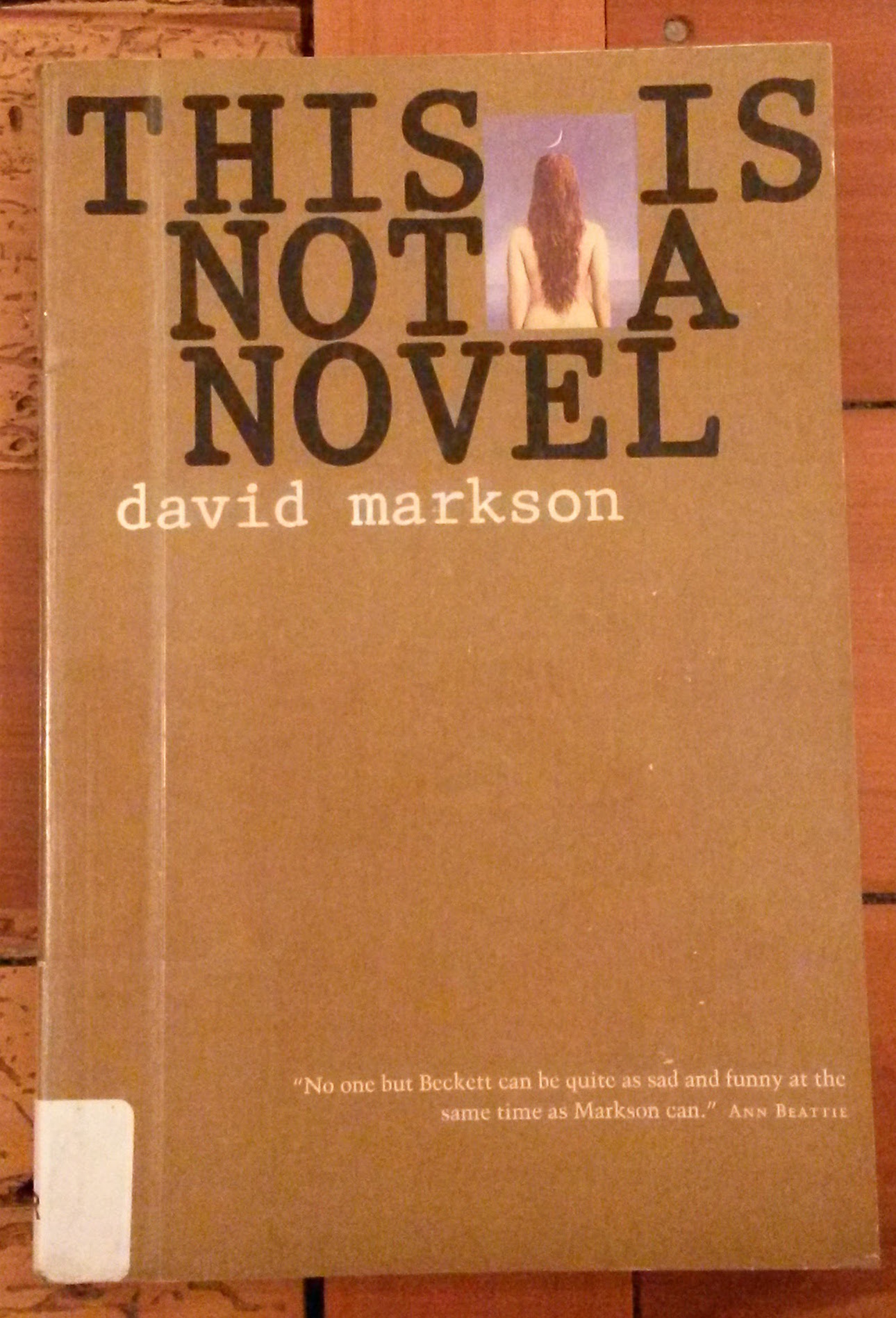 I have never read a novel like this before, but that’s obvious since it is actually not a novel. (The clue is in the name.) But it has characters (well, a character), lots of historical figures, and a (very faint) narrative arc. And it’s pretty fun to read.
I have never read a novel like this before, but that’s obvious since it is actually not a novel. (The clue is in the name.) But it has characters (well, a character), lots of historical figures, and a (very faint) narrative arc. And it’s pretty fun to read.
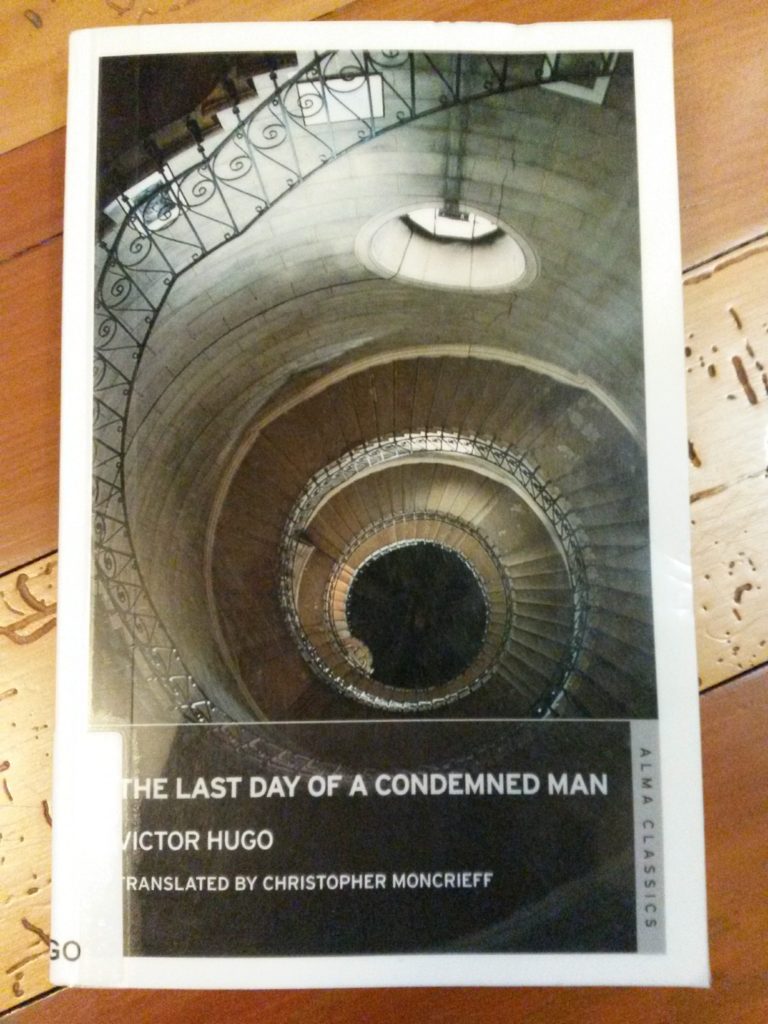 Notes purportedly written by a condemned man during the day before his scheduled execution. Hugo wrote this as a protest against the death penalty at a time when the guillotine was in enthusiastic use by the French authorities. It works well by humanising the doomed prisoner, though I feel it cheats a little by never detailing the crime that put him on death row in the first place. Still a powerful read.
Notes purportedly written by a condemned man during the day before his scheduled execution. Hugo wrote this as a protest against the death penalty at a time when the guillotine was in enthusiastic use by the French authorities. It works well by humanising the doomed prisoner, though I feel it cheats a little by never detailing the crime that put him on death row in the first place. Still a powerful read.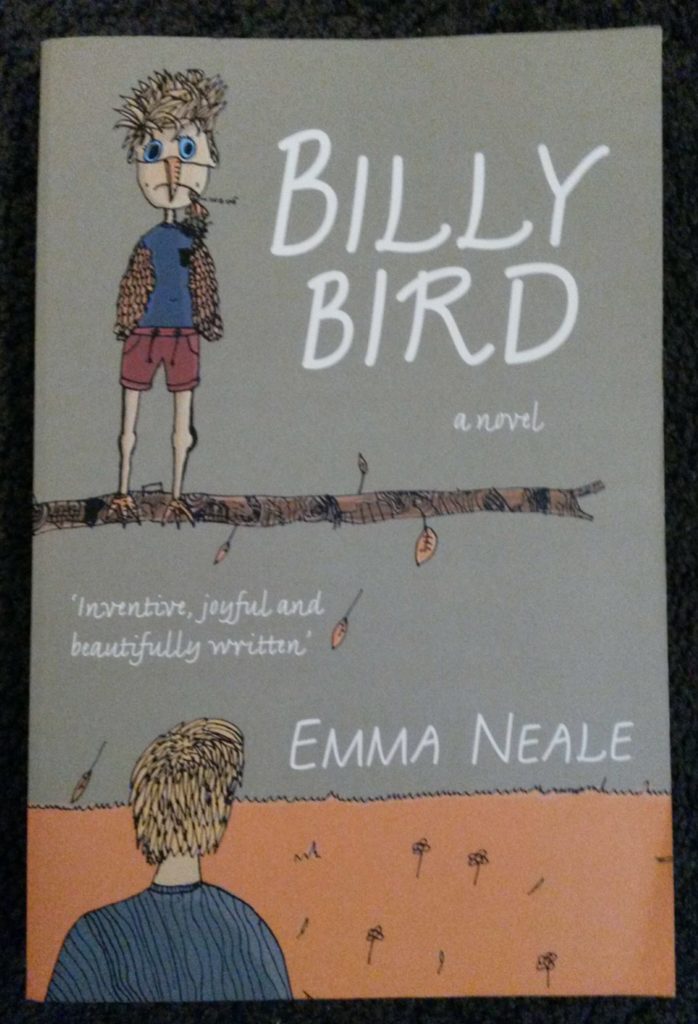
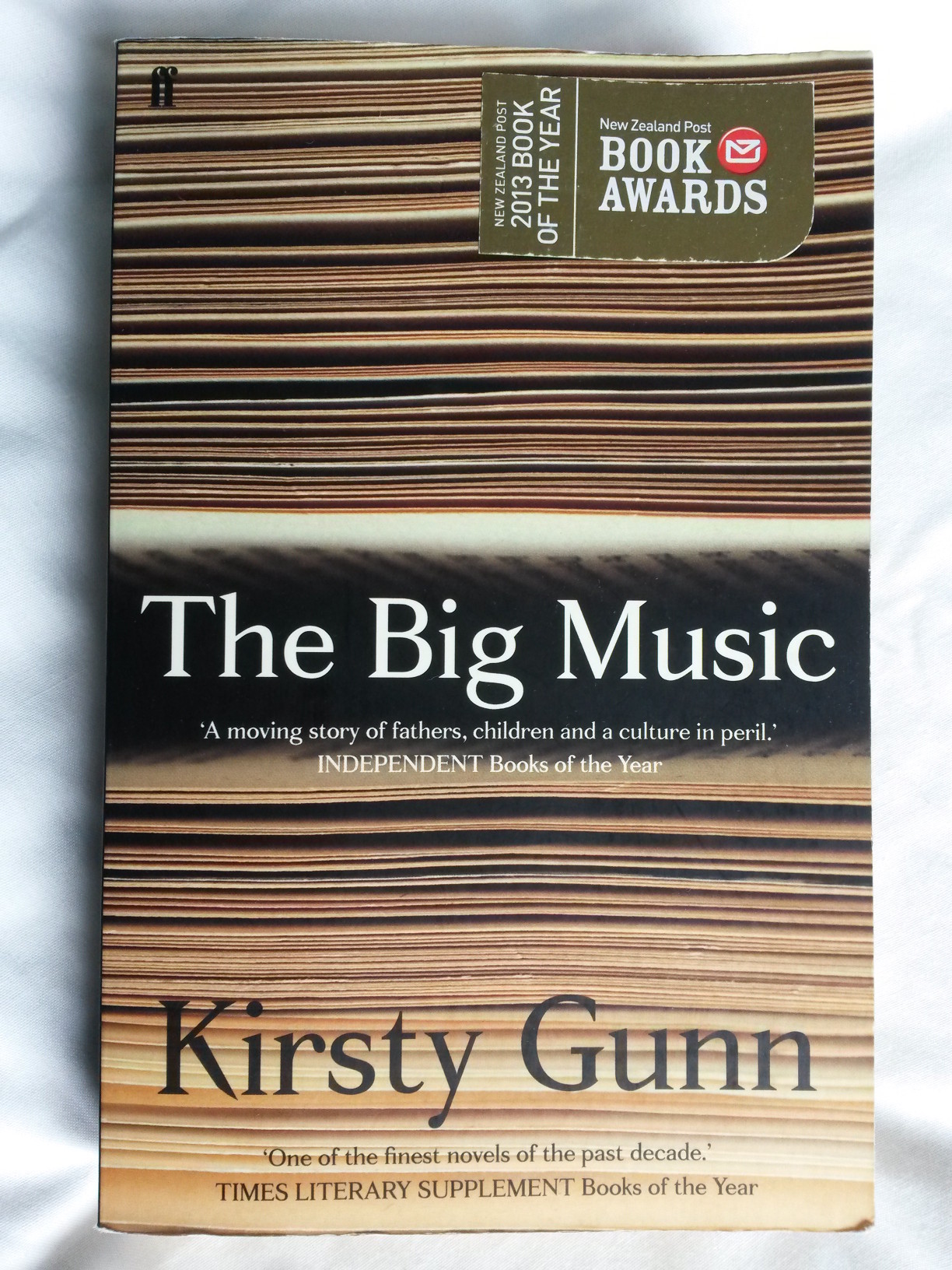 An old man kidnaps his housekeeper’s granddaughter and takes her for a walk in the hills. He needs to write her into a piece of music he is composing. This is the start of this novel, and as it continues we learn more about the history of his family, which has lived for many generations in a remote house in the Scottish highlands. The house and family have become famous in the world of classical bagpipe music, the “big music” of the title.
An old man kidnaps his housekeeper’s granddaughter and takes her for a walk in the hills. He needs to write her into a piece of music he is composing. This is the start of this novel, and as it continues we learn more about the history of his family, which has lived for many generations in a remote house in the Scottish highlands. The house and family have become famous in the world of classical bagpipe music, the “big music” of the title.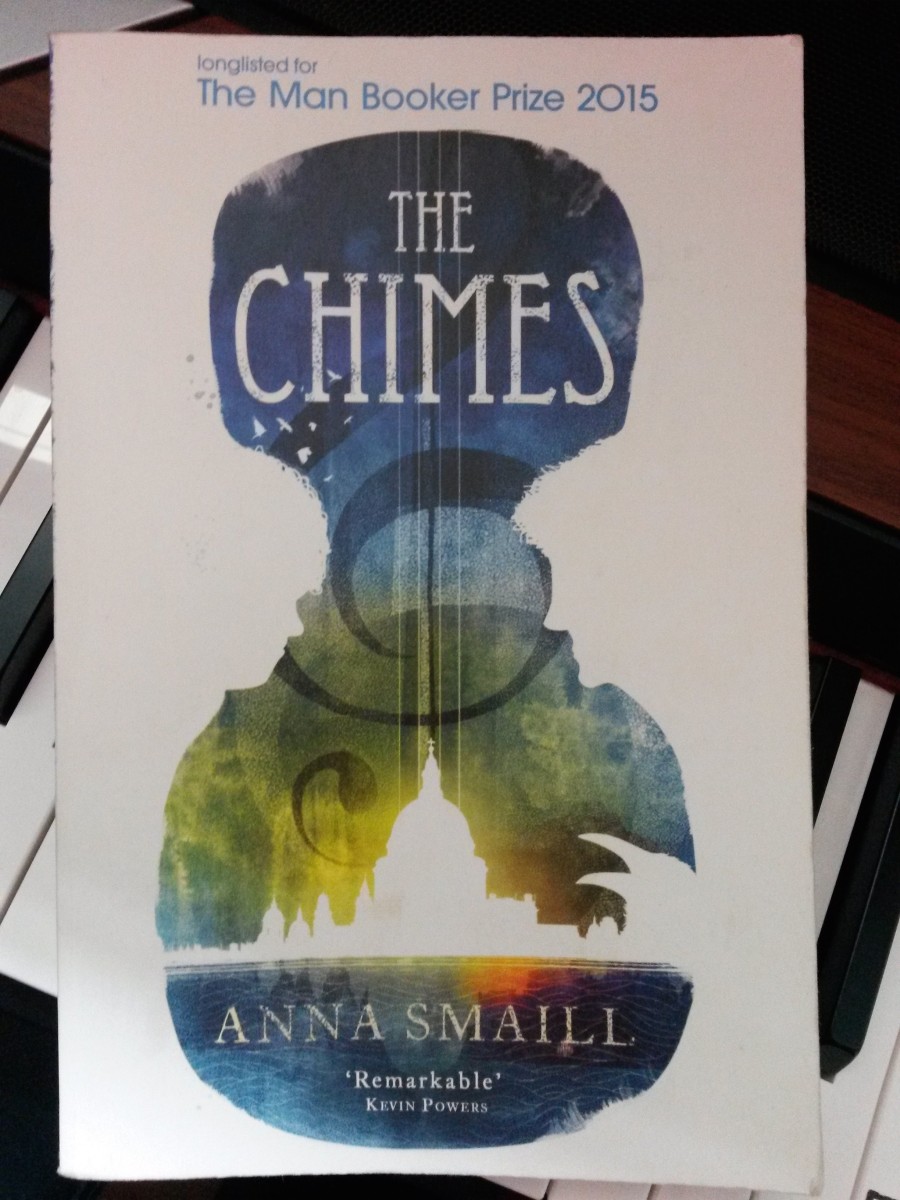 What would life be like if we communicated with music instead of words? That’s the situation in the dystopian future of The Chimes. People have lost most of their ability to remember in words, so they must rely on objects to prompt their memories, and an intricate musical language to communicate. Simon, a young man, fetches up in London with only a vague idea why he came and what he’s supposed to do there. Things start happening to him, and before long he starts making things happen himself. Eventually he becomes part of a revolutionary struggle.
What would life be like if we communicated with music instead of words? That’s the situation in the dystopian future of The Chimes. People have lost most of their ability to remember in words, so they must rely on objects to prompt their memories, and an intricate musical language to communicate. Simon, a young man, fetches up in London with only a vague idea why he came and what he’s supposed to do there. Things start happening to him, and before long he starts making things happen himself. Eventually he becomes part of a revolutionary struggle.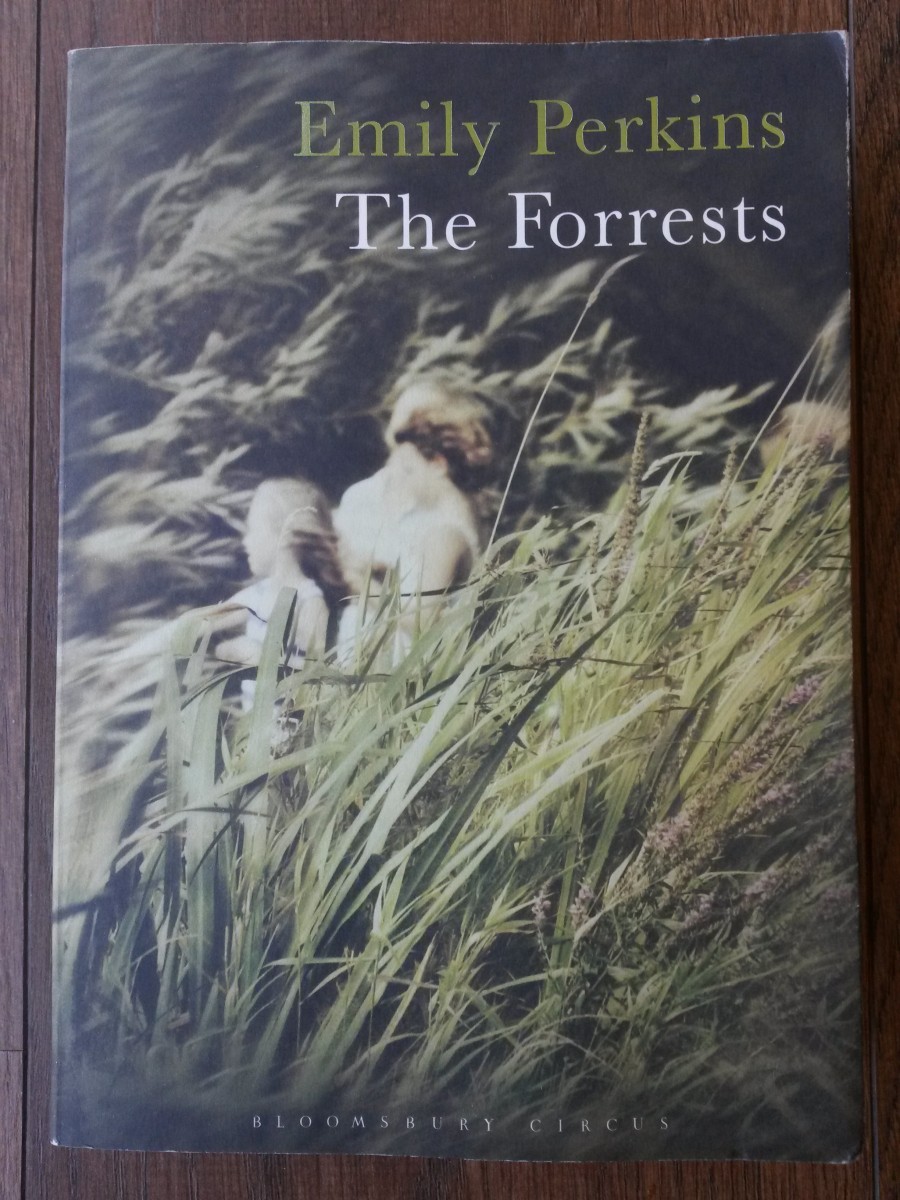 This novel is Dorothy Forrest’s life story, and her complicated family life too. After reading it I felt that I knew her quite well…
This novel is Dorothy Forrest’s life story, and her complicated family life too. After reading it I felt that I knew her quite well…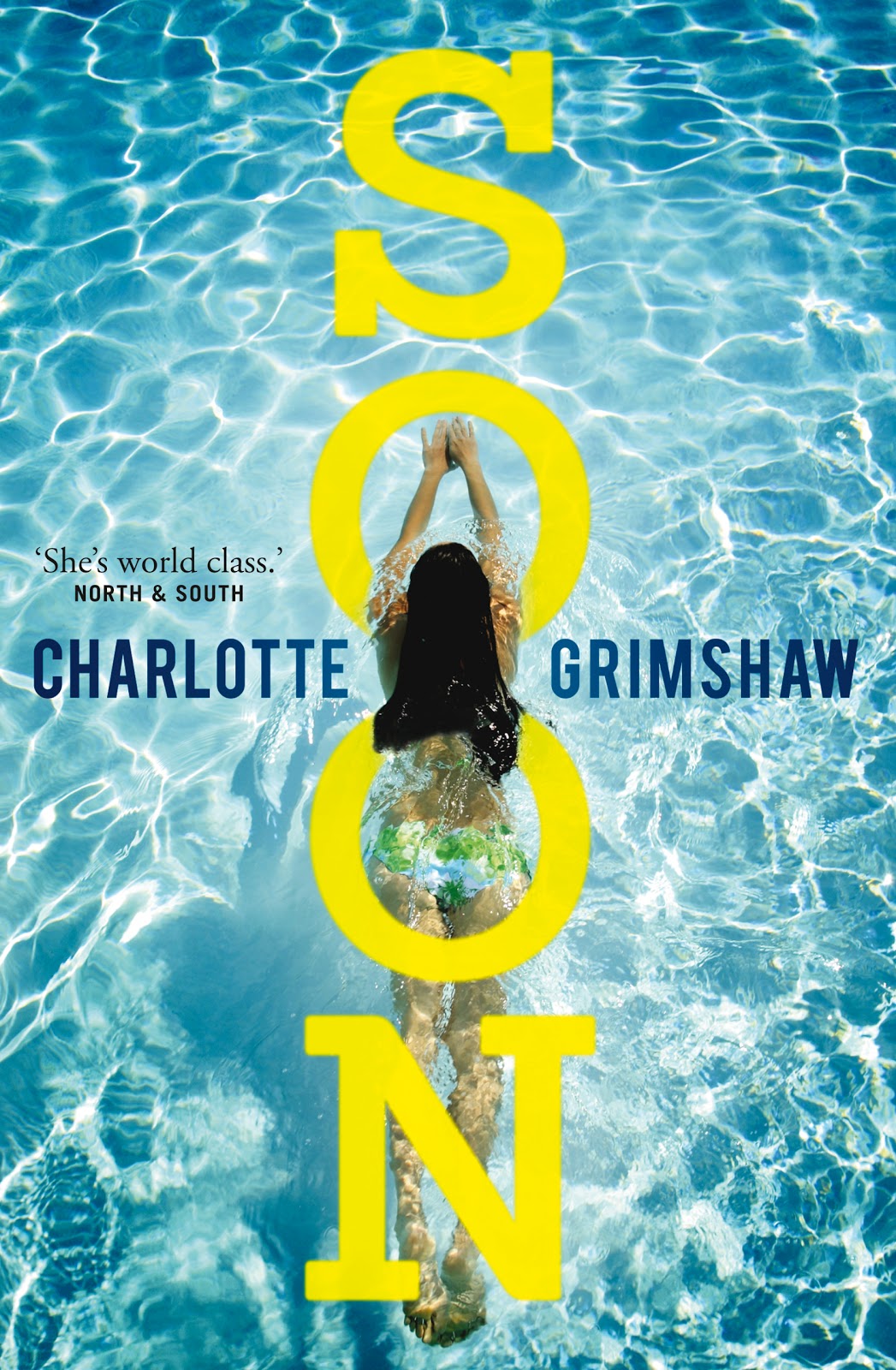 Two very interesting characters inhabit this story: Roza, the Prime Minister’s wife, a creative maverick who still manages to fit in with his circle; and her precocious young son Johnny, who is clever and manipulative and a bit of a nightmare. Throughout the novel, Roza tells Johnny a story featuring a large cast of characters including a nasty dwarf called Soon, and surreal happenings, all based on the other people in the novel. It’s like a terrifyingly twisted Enid Blyton romp, and it’s fun drawing parallels between Roza’s story and the novel.
Two very interesting characters inhabit this story: Roza, the Prime Minister’s wife, a creative maverick who still manages to fit in with his circle; and her precocious young son Johnny, who is clever and manipulative and a bit of a nightmare. Throughout the novel, Roza tells Johnny a story featuring a large cast of characters including a nasty dwarf called Soon, and surreal happenings, all based on the other people in the novel. It’s like a terrifyingly twisted Enid Blyton romp, and it’s fun drawing parallels between Roza’s story and the novel.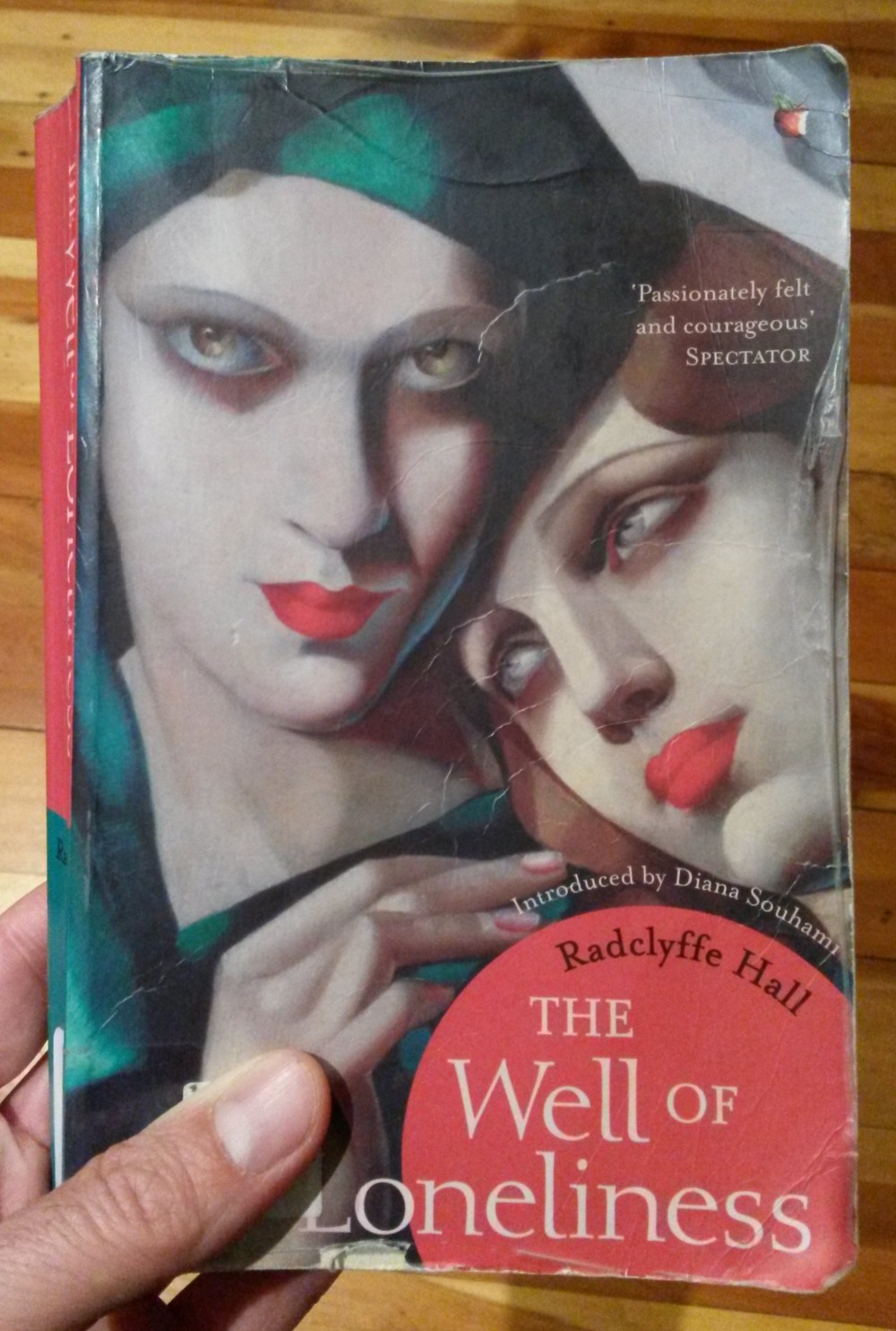 This story is about a tomboyish girl called Stephen. It traces her life from her birth and upbringing in a wealthy and genteel English family in the late 1800s, through the first world war and on to a successful career. She never feels quite comfortable conforming to the model of a well-brought-up young woman, and it takes many years to realise what the reader already knows, that she is (in her own words) an “invert”. Of course, such things were not discussed back then, at a time when the authorities did not even acknowledge lesbianism’s existence, and would have made it illegal if they had. The book was banned (and burned) on publication in 1928 in England.
This story is about a tomboyish girl called Stephen. It traces her life from her birth and upbringing in a wealthy and genteel English family in the late 1800s, through the first world war and on to a successful career. She never feels quite comfortable conforming to the model of a well-brought-up young woman, and it takes many years to realise what the reader already knows, that she is (in her own words) an “invert”. Of course, such things were not discussed back then, at a time when the authorities did not even acknowledge lesbianism’s existence, and would have made it illegal if they had. The book was banned (and burned) on publication in 1928 in England.